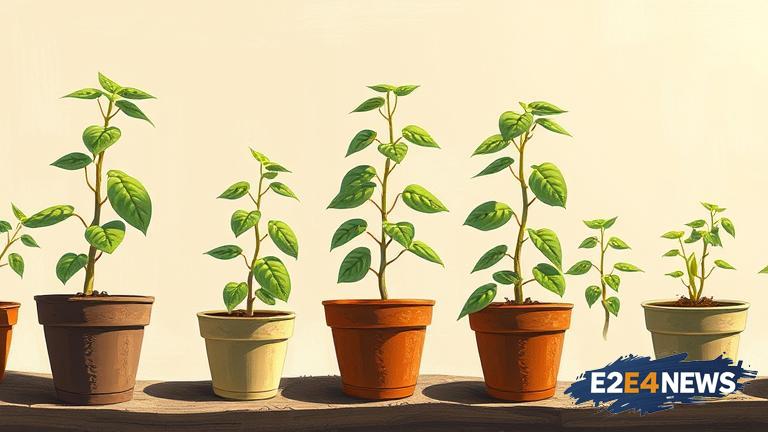In her recent column, Tavleen Singh uses the metaphor of potted plants to illustrate the limitations of growth and progress in a constrained environment. She argues that just like potted plants, which are limited by the size of their pot, individuals and societies are also limited by their circumstances. Singh notes that while potted plants may appear to be thriving, they are actually stunted by their confinement. Similarly, individuals and societies may appear to be making progress, but they are often held back by the constraints of their environment. The author suggests that this is particularly true in India, where the country’s rapid economic growth has not necessarily translated into improved living standards for all citizens. Singh argues that the Indian government’s focus on economic growth has come at the expense of other important factors, such as education, healthcare, and infrastructure. She notes that while India has made significant strides in terms of economic development, it still lags behind other countries in terms of human development. The author also critiques the Indian government’s tendency to prioritize grand projects and schemes over more practical and effective solutions. Singh suggests that this approach has led to a lack of focus on the everyday needs and concerns of ordinary citizens. She argues that the government’s priorities should be guided by the needs of the people, rather than by a desire to showcase India’s economic prowess. The author also notes that the Indian media has a tendency to focus on sensational and attention-grabbing stories, rather than on more substantive issues. Singh argues that this has contributed to a lack of nuanced and informed public discourse in India. She suggests that the media has a responsibility to provide accurate and balanced reporting, rather than simply chasing ratings and clicks. The author also critiques the Indian public’s tendency to be swayed by emotional appeals and populist rhetoric, rather than by careful consideration and critical thinking. Singh argues that this has led to a lack of engagement with complex and nuanced issues, and a tendency to oversimplify complex problems. She suggests that Indians need to develop a more nuanced and informed understanding of the issues facing their country, and to engage in more thoughtful and constructive public discourse. The author concludes by noting that the metaphor of the potted plant is a powerful reminder of the limitations of growth and progress in a constrained environment. Singh argues that Indians need to recognize these limitations and work to create a more supportive and enabling environment, in which individuals and societies can truly thrive. She suggests that this will require a fundamental shift in the way that Indians think about progress and development, and a greater focus on the everyday needs and concerns of ordinary citizens. The author also notes that this will require a more nuanced and informed understanding of the complex issues facing India, and a greater willingness to engage in thoughtful and constructive public discourse. Overall, Singh’s column is a thought-provoking commentary on the limitations of growth and progress in a constrained environment, and a call to action for Indians to work towards creating a more supportive and enabling society. The author’s use of the metaphor of the potted plant is a powerful reminder of the need for nuanced and informed thinking, and for a greater focus on the everyday needs and concerns of ordinary citizens. Singh’s column is a must-read for anyone interested in Indian politics and society, and in the complex issues facing the country today.
